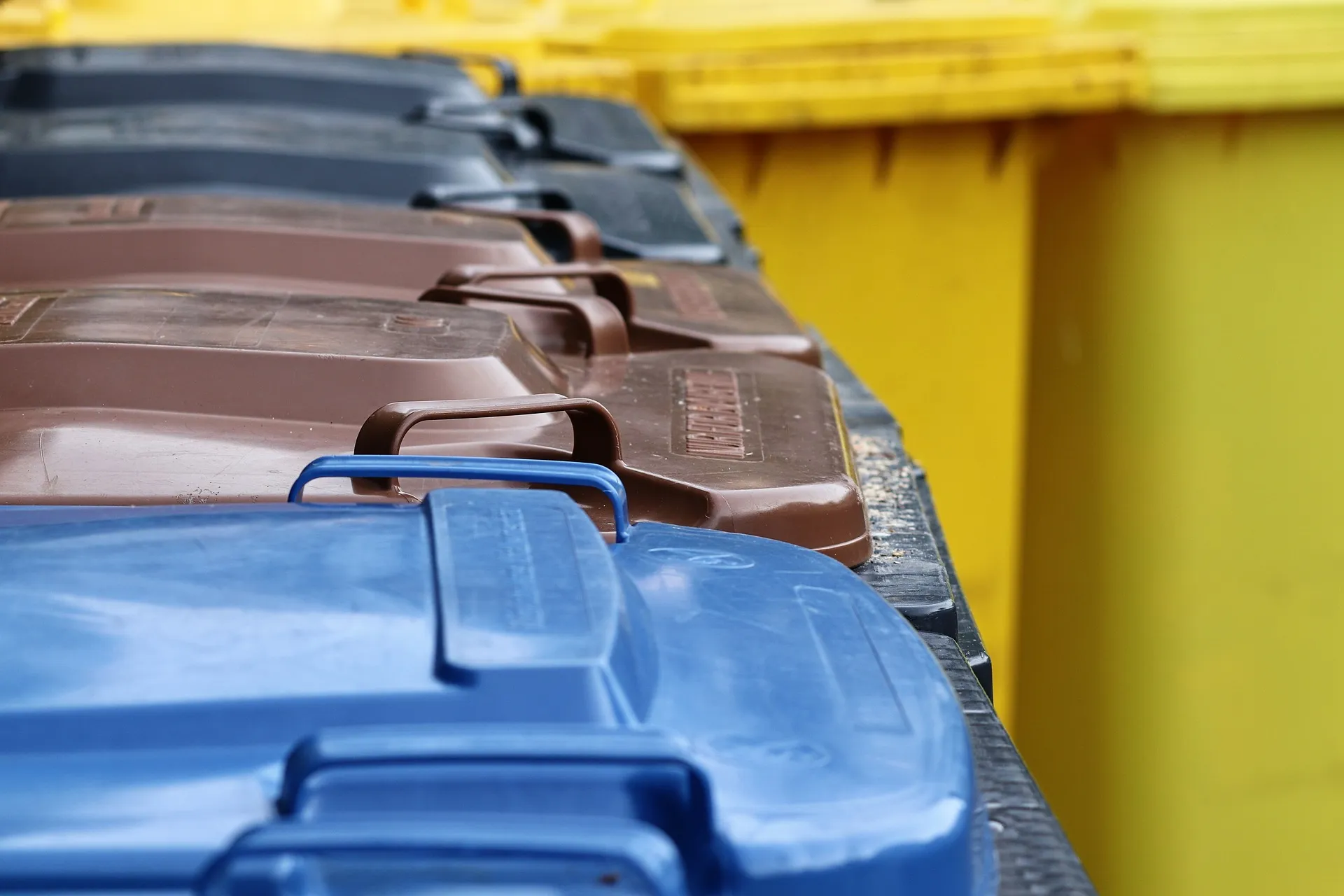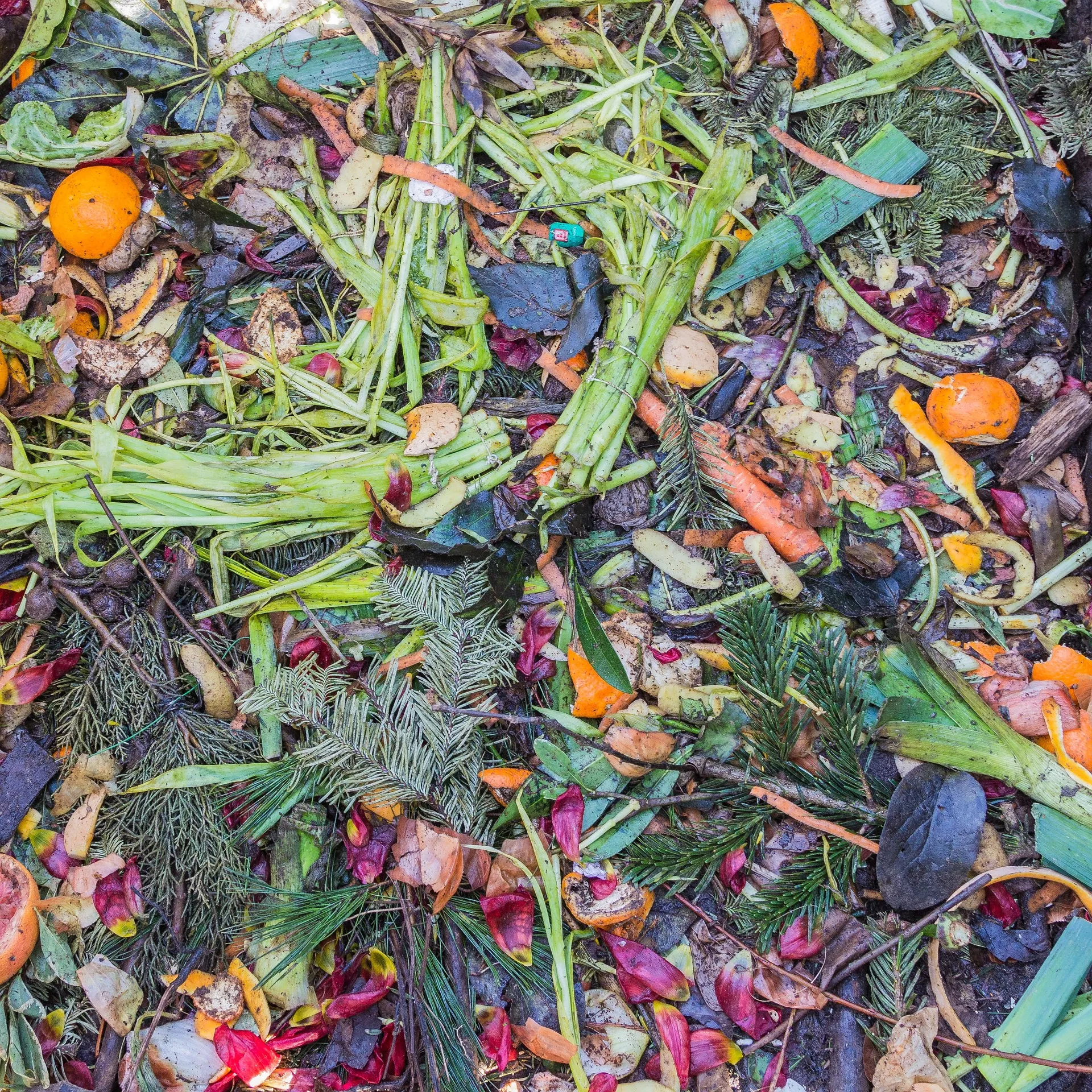
Our planet is becoming a giant rubbish tip
In the UK, we chuck away 220 million tonnes of waste every year − about the weight of 30 million fully grown male African elephants. Quite a herd!
A lot of it shouldn’t go into waste at all. With a bit of effort and imagination, we could do something that's better for the environment.
Four ways to reduce your household waste
-
repair − you can extend the life of a lot of the big-ticket items in your home by getting them repaired
-
reuse − it’s amazing what you can do with things you originally bought for another purpose
-
recycle − you don't want it but someone else might!
-
compost − allow your vegetable waste to rot in a pile in your garden with plenty of air, moisture and warmth

The amount of waste we produce is a cause of climate change, because manufacturing new items generates greenhouse gases.
And it uses up raw materials, energy, chemicals and water.
So it’s really important to think about what happens to the stuff you don’t want. Let's take a closer look at your options.
Get it fixed
We’re all used to getting our cars fixed when they break down but not enough of us do the same with things like washing machines and televisions.
You can extend the life of a lot of the big-ticket items in your home by getting them repaired.
Often it’s something simple that’s gone wrong, like a fuse or a switch. A qualified technician can fix this kind of thing quite easily and cheaply.
There are people in Hart who can fix a lot of other stuff that might be hanging round your house. Even things you’ve had for decades, like old vinyl record players.
Check out our case study on the North Hampshire Repair Café.
Find a new use for it
It’s amazing what you can do with things you originally bought for another purpose. You don’t need to throw them away if they can be used for something else.
The classic example is a plastic food container. It might have had ice cream in it when you bought it, but you can extend its life for months or even years.
Reuse it for food storage in your cupboard, fridge or freezer.
The same kind of thinking can work for larger items. What about that old chest of drawers? The charity shop won’t take it, but it might have another use. Put it in your shed or garage and use it to store tools. Or use the drawers as plant holders in the garden.
Give it a new lease of life
There’s more than one way to recycle. A lot of us just think about what goes into our blue bin or our glass box. Hart District Council has a list of things you can and can’t recycle on its website.
But that’s more a last resort than a solution to waste. If you’re putting loads of stuff into your blue bin, ask whether you buy too many products that come in unnecessary packaging.
Recycling could mean taking unwanted clothes and furniture to a charity shop.
That’s also a type of recycling because someone else will get the benefit.
And your recycling isn’t limited to the blue bin and charity shops. There are several recycling centres in Hart that will take your unwanted stuff. Things like clothes, shoes, electrical items, batteries and foil.
Feed your flowerbeds for free
Put your household vegetable waste on a compost heap and, after a few months, you’ll have a nutrient-rich mulch to dig into your flower beds.
Think of all the carbon you'll save by not transporting your vegetable waste to landfill. And remember that landfill gases have to be managed on site to prevent build-up and potential explosions. This requires machinery that also produces greenhouse emissions.
If you want to try home composting, Hart District Council can put you in touch with an approved supplier of composting bins.
Next section: Case study on North East Hants Repair Café


